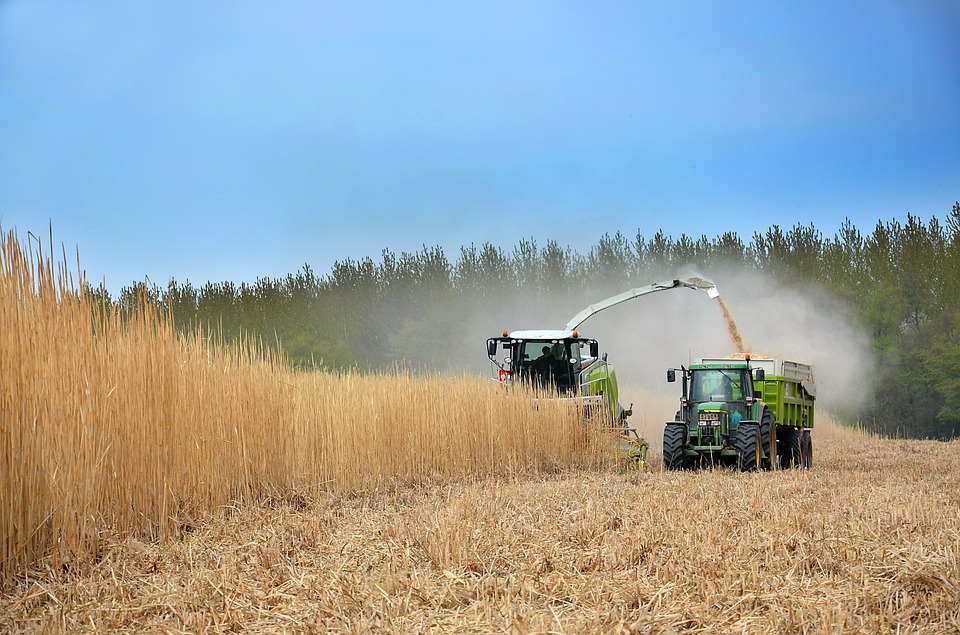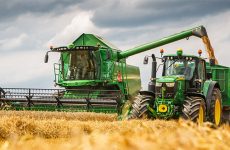There is a need for a sustainable agricultural lifestyle now more than ever. By sustainable agriculture, we are talking about being able to meet the existing society’s current food needs, while at the same time preserving agricultural resources to meet future food and textile needs. The world population is growing day by day and is projected to hit 9 billion by 2050. While the available resources will remain constant, we will be required to meet the agricultural needs of the growing population.
Most of the existing agricultural practices have resulted in a lot of wastage, and there is a need to embrace sustainable practices. The goal of sustainable agriculture is to preserve the environment and natural resources for future generations to enjoy.
-
Embracing agro-technology
Embracing innovative agricultural technology manufactured by Peruzzo Srl is a big step towards sustainable agriculture. They have technologies such as mowers that help in the care and maintenance of the firm while addressing the nutritional challenges of the soil caused by the use of chemicals to maintain the land. The use of herbicides for clearing land or weeding can lead to severe environmental degradation, causing irreversible damage to the soil and water. The effects include reduced yields and nutritional value of crops produced by the firm. The use of Peruzzo products improves farming practices and, at the same time, preserves natural resources.
Such technologies can also reduce tillage, which is known to cause a lot of soil loss. The use of machinery to plant without tilling can curb soil erosion and preserve the nutrients in farms.
-
Incorporate diversity
Encouraging diversity on your farm can contribute significantly to sustainable agriculture. Wind erosion is among the many challenges faced in crop farming. The wind blows away topsoil, which is rich in nutrients necessary for the healthy growth of crops. The loss of nutrients inhibits the ability of the remaining soil to produce crops. While mild winds gradually erode the soil, strong winds can lift large volumes of soil particles. Planting trees around farms will not only act as windbreaks but also habitats for pollinators such as birds and bees.
Introducing nematodes like fleas, grub worms, and fire ants can help keep pests away from your farm. Such organic pest control measures do not harm the soil, plants, or animals. Crop rotation is yet another diversity strategy that will be effective in preserving nutrients in the soil. Instead of using chemical fertilizers to increase the fertility of the land, embrace green manures and companion cropping. Keeping both livestock and crop farming will present a symbiotic relationship that will allow both plants and animals to benefit from each other mutually.
-
Organic pest management
Pesticide use causes contamination to the environment. It causes water, soil, and air pollution. The wide range of pesticides used on farms has been found to have detrimental effects on humans and other forms of life. To prevent unwanted side effects in the future, incorporating sustainable pest control strategies such as natural pest control will protect the ecosystem.
Biodiversity and crop rotation are some of the management practices that have proved to be effective. The diversity of crops has, over time, proved to be successful in attracting a range of natural predators. Planting crops that do not favor certain pests is also a natural pest management strategy that preserves natural resources for future generations. Birds, bats, ladybugs, and fly parasites are a few of the many pest predators you can allow on your farm.
-
Urban agriculture
Though it is yet to be embraced everywhere globally, urban agriculture is playing an impressive role in meeting the food needs of different populations. As the global population grows, farms alone may not be enough to meet the growing demand for food. Urban agriculture is an innovative way of making the way we produce food dynamics. Community gardens, rooftop farms, and greenhouses will be an effective way of meeting food demands in the cities.
Sustainable agricultural practices look to ensure that the very valuable natural resources are preserved, and at the same time, the continually growing demand for food is being met. Be a part of the journey of ensuring that future generations have enough by incorporating the above agricultural practices.


